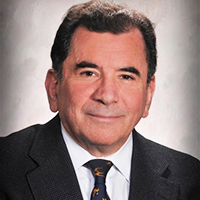By Matthew M. Cooper
Society is currently at a defining moment in history, where disparities in healthcare access and delivery are part of threatening socioeconomic upheaval. This point in time represents either the emergence of a foundation for profoundly enhanced solutions, or a precipice for greater instability.
Many people view digital overlays, artificial intelligence (AI), and generative capabilities as heuristics to enable and augment human proficiency and performance. We work in increasingly complex environments that challenge the inherent human limitations of handling ever-growing cognitive loads and integrating new information to potentially change the direction of decision vectors. Precision and speed are equally critical to bring about necessarily effective actions.
The future portends a technological capability to sense when a human operator is stressed, task-saturated, or otherwise in need of assistance. An effective solution could use biometric and other measures to assess the cognitive and performance state, identify the required type and timeline of information and guidance, and determine the best communication tactic and rate of transmittal.
Figure 1. Advanced artificial intelligence technology has the potential to radically improve health care for both individuals and entire populations around the world. Adobe Stock Metamorworks image.
When evaluating a patient, we can now reasonably speak and think about the
Internet of Bodies [1]. We can sense almost anything. The difficulty stems from determining
what to sense to impact awareness, decision-making, and enhanced outcomes. The very real prospect of an all-body, noninvasive diagnostic tool that detects and interprets the “language” (function/state) of organ systems is upon us (see Figure 1). Practitioners could deploy this tool to screen for occult and uncommon disease and surveil and manage wellness and chronic disease via telehealth. In any setting, the historic patient encounter that includes a medical history, physical examination, diagnostic impression, and therapeutic plan may thereby evolve to incorporate assisted analysis, augmented sensing, point-of-care testing, propensity matching of the patient with virtual cohorts in real time, and optimized diagnosis and guidance for precision therapy and treatment.
In an ideal world without resource constraints, scientists could combine wearable devices for remote, mobile health monitoring with computer modeling and simulation to create digital twins — equivalent to those for jet engines. Continuous sensing would detect adverse trajectories in performance and wear and tear, thus predicting the occurrence and timing of failure modes that could be mitigated with proactive and preventative personal “maintenance.”
Though such a scenario is not currently possible, we can still broaden our perspective to offer what naturalistic and critical decision-making pioneer Gary Klein calls “expert intuition” to use AI to “give everyone the best doctor, the best tests, the best analysis, anywhere in the world and at low cost — the potential to truly democratize health care” [2].
Expanding the scope of treatment involves moving from individuals to entire populations. Shared, anonymized data collectives allow predictive analyses and preventative interventions; they can also be made broadly available and accessible. This type of digital ecosystem would include patients, providers, payors, and commercial platforms. But who will pay for such a system, and to whom is a return on investment due? Reality emphasizes the existence of technological limits and constraints. Who will be included, and who will be left out? How do we mitigate disparities in access — and is doing so a realistic expectation? Technology cannot provide all of the answers, which must combine policy, priority, procurement, and a sense of shared humanity. Who makes these decisions?
If the solution for the future is AI—or more specifically, generative AI—what are the concerns and caveats? AI is a powerful, capable tool that can design and build nearly anything. It is a powerful partner that can explore space without the need for food or air, but it is also potentially a powerful weapon. How do we know if it is trustworthy if we cannot check the code? The knowledge basis and reward structure are unknown, as is the entity to which it reports.
We are in a critical stage of this Earth and this humanity. We will not reach the future by being passive; we must ask ourselves whether our current actions are good enough. Innovation must continue, and we will need a unified focus to enable the required generational achievement to provide precise, safe health care for everyone.
This article was inspired by a panel discussion titled “The Future of Digital Health” that took place during the 2023 SIAM International Conference on Data Mining, which was held in Minneapolis, Minn., last year. Author Matthew Cooper served as a panelist and moderator, along with Richard Kuntz of Medtronic, Genevieve Melton-Meaux of the University of Minnesota, and Josh Firminger of UnitedHealthcare.
References
[1] Marr, B. (2019, December 6). What Is the Internet of Bodies? And how is it changing our world? Forbes. Retrieved from https://www.forbes.com/sites/bernardmarr/2019/12/06/what-is-the-internet-of-bodies-and-how-is-it-changing-our-world.
[2] Pande, V. (2018, May 23). How to democratize healthcare: AI gives everyone the very best doctor. Forbes. Retrieved from https://www.forbes.com/sites/valleyvoices/2018/05/23/how-to-democratize-healthcare.
 |
Matthew M. Cooper, MD MBA FACS FAsMA FCAMA, previously served as Vice President of Medical Affairs, Corporate Health, and Safety for 3M Health Care. He is a diplomate of the American Board of Thoracic Surgery and a Fellow of the American College of Surgeons, the Aerospace Medical Association, and the Civil Aviation Medical Association. Cooper’s research has addressed pioneering methods of immunosuppression for primate cardiac xenograft transplantation. He is expert in aviation physiology, a special consultant to the Federal Air Surgeon, and a leader in the application of aviation-based safety culture to health care. |